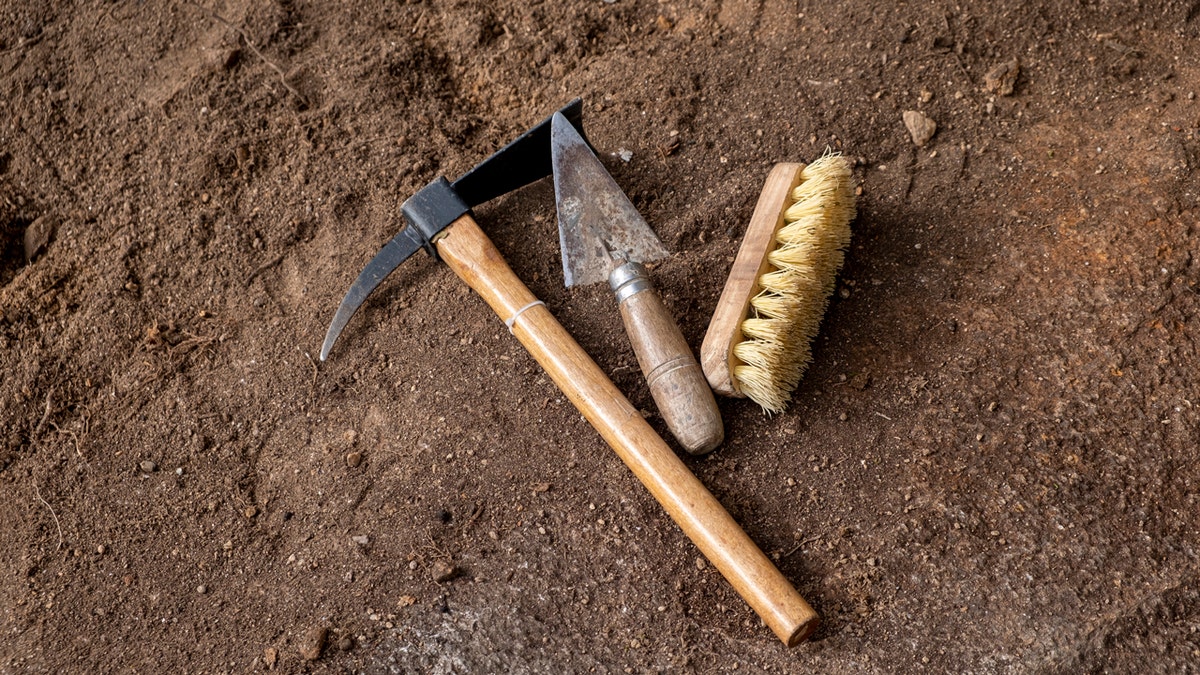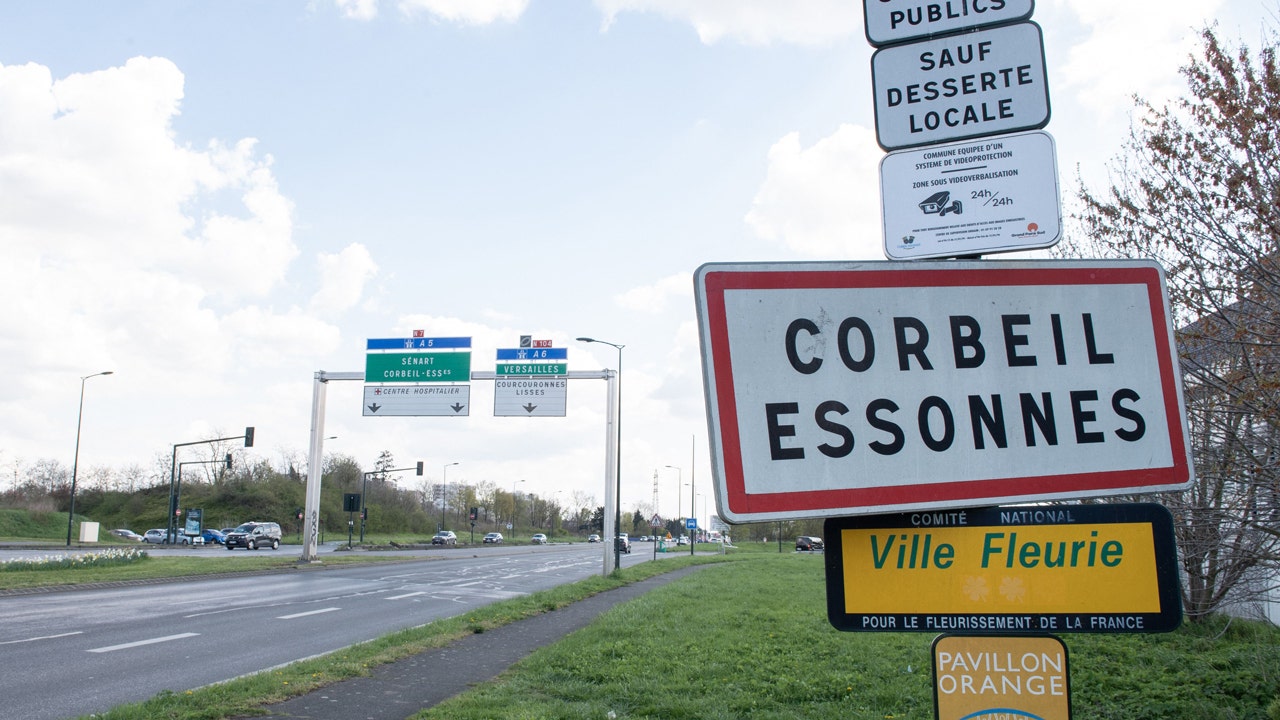During the winter of 2023-2024, archaeologists of Archeodunum Research Center were called to a home nestled in a suburb of Paris after a homeowner discovered a skeleton in his basement, sparking a monthslong excavation filled with significant findings.
Sometimes, ancient discoveries come when least expected, and that was surely the case for the homeowner who spotted the unusual find right in his own home.
The finding of a single skeleton by a homeowner in Corbeil-Essonnes was just the beginning of an archaeological excavation that led to the discovery of 38 burials across four rooms, according to a translated statement from Archeodunum.
What started out as a home renovation became a full archaeological excavation after a homeowner near Paris discovered a skeleton in his basement. (ALAIN JOCARD/AFP via Getty Images)
ARCHAEOLOGISTS UNEARTH UNEXPECTED FIND INSIDE TOMB LIKELY BELONGING TO A ROMAN GLADIATOR
The presence of a cemetery from the Middle Ages has been known due to several plaster sarcophagi from the period being previously discovered, according to the statement, which scholars believed were connected with Notre-des-Champs chapel.
The chapel is thought to have been built in the 7th century on the site of a pagan temple, though there has been no evidence of construction found, according to Archaeodunum.
Prior to this excavation, the graves of the cemetery had never been subjected to scientific study, the statement also noted.

Thirty-eight burials were discovered during the archaeological excavation. (iStock)
MOM, SON DIG UP ANCIENT OBJECT OFTEN FOUND NEAR BURIAL GROUNDS WHILE GARDENING
This excavation unveiled graves that were far older than archaeologists expected, ranging from the third century A.D. through the 10th century.
It was not until the early Middle Ages that funeral practices started to evolve. During this time, the deceased were buried in plaster sarcophagi, sometimes decorated, though the ones recently discovered were not, according to Archaeodunum.
Oftentimes, the remains of more than one were placed in plaster sarcophagi, but the 10 that were found contained the remains of a single person in each.
Before this, during the Roman period, the deceased were placed on their backs in wooden enclosures.

The home that was excavated by archaeologists is located in Corbeil-Essonnes, in the suburbs of Paris. (ALAIN JOCARD/AFP via Getty Images)
CLICK HERE TO GET THE FOX NEWS APP
Further analysis of the cemetery continues to be done, which specialists hope will lead to unanswered questions being solved, such as the sex, age of death and living conditions of those whose remains were unearthed, according to Archaeodunum.
Additionally, specialists will be working around the main objective of understanding how many people lived in the area during the Antiquity and Middle Ages, while also gaining a deeper understanding of how funerary traditions evolved through time, according to the source.





